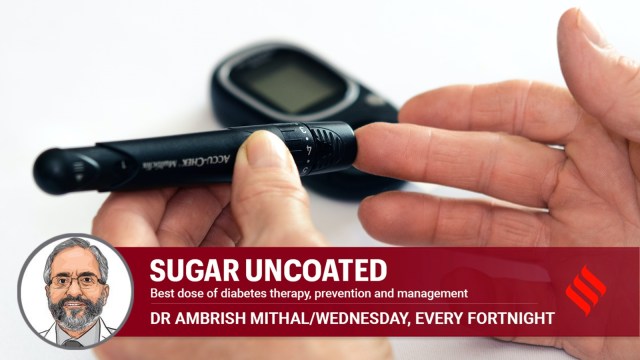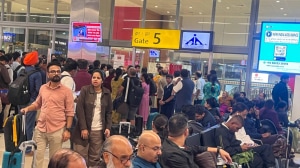Diabetes check: Why you need an hour’s walk or a 20-minute run to burn a 50 gm slice of cake
Dr Ambrish Mithal, Chairman of Endocrinology and Diabetes at Max Healthcare tells you how to party while keeping your blood sugar in check
 A rule of the thumb is that even if your blood sugar levels rise for short periods, post-meal values should be below 200mg/dl. (Pexels)
A rule of the thumb is that even if your blood sugar levels rise for short periods, post-meal values should be below 200mg/dl. (Pexels)Celebration in all societies means the consumption of sweets, a ritual ingrained in us from childhood. Our terms of endearment for those we love are also “honey” “sweetheart” “sugar” “sweetie pie.” If Diwali was about laddoos and barfis, Christmas and New Year shifts the focus to cakes and pastries. While it is important to enjoy this period, it is good to be prudent especially if you have diabetes or even prediabetes. You may have worked hard all year and you don’t want to fritter away the gains in a few weeks.
A 50 gm slice of cake will give you 160-200 calories, with more than 30 gm of that being refined carbohydrates, along with a generous dose of saturated fat. It will take you more than an hour of walking or 20 minutes of running or cycling to burn those calories.
Does this mean that people with diabetes cannot enjoy themselves?
The answer is NO.
We may get higher blood sugar levels during Christmas because of the changes in our routine, dietary indulgence and increased socialising. Maintaining a consistent meal, physical activity and sleep schedule can be challenging. Some fluctuations are inevitable, but minor elevations should not bother you too much. Ask your doctor for appropriate blood sugar targets. A rule of the thumb is that even if your blood sugar levels rise for short periods, post-meal values should be below 200mg/dl. Regular checking, is, therefore important.
Just keep moving
If the cold weather is a deterrent, continue indoor exercises. A real fun way to enjoy physical activity at this time is to dance at parties which is a great workout.
Make smart food choices to keep yourself healthy. Some tips:
- At parties, serve yourself rather than being served.
- Fill half your plate with vegetables, steamed rather than fried – this reduces calories and unhealthy fats, while preserving vitamins and minerals.
- Consume proteins in each meal, be it chicken, fish, eggs, lentils, legumes, sprouts, unflavoured yogurt, soya and tofu. Limit processed and cured meat as these are rich in salt and fat.
- Watch out for hidden sugars in ketchups, sauces and mocktails/cocktails
- Avoid foods rich in trans fats like chips, fries, namkeens and cookies.
- Have plain nuts instead of salted or fried
- If the party is likely to be prolonged and dinner served late, eat at home before you leave. This is especially true of those on insulin or sulphonylureas.
Remember, eating mindfully, instead of gulping food down will allow you to reduce portion sizes.
What about alcohol?
In general, we should avoid alcohol completely but at times that may be difficult socially. In such cases please continue to follow the basic guidance. Binging on alcohol is a recipe for disaster, and can have numerous consequences, including falls and road accidents. Besides, by its impact on the liver, alcohol can provoke a sudden drop in blood sugar, which at times can hit dangerously low levels. Ensure that you do not have alcohol on an empty stomach, and consume non-fried healthy snacks . If you have had alcohol with dinner, check blood sugar before you sleep. If blood sugar is lower than 100 mg/dl, take a small snack – maybe a fruit or a cup of milk. Stay within defined limits – approximately 30 to 50 ml of whisky or equivalent. Cocktails (or mocktails) may have large amounts of sugar – check before you gulp!
With guardrails, you can enjoy festivals even if you have diabetes.
(For feedback and suggestions, write to health.indianexpress@gmail.com)
- 01
- 02
- 03
- 04
- 05































